PREVIOUS
Freedom Fighters from Tamil Nadu Part – 13
Freedom Fighters from Tamil Nadu Part – 13
(இதன் தமிழ் வடிவத்திற்கு இங்கே சொடுக்கவும்)
63. Solingapuram Devarajan
Early Life and Background
- Solingapuram Devarajan was born in 1902 in Solingapuram, North Arcot district of Tamil Nadu.
Freedom Movement Participation
- Devarajan was actively involved in the freedom movement alongside Rajaji.
- He served as the secretary of the Walajah Taluk Congress Committee.
Arrests and Imprisonments
- He was arrested in 1939 for his role in the Satyagraha and imprisoned in Alipur Jail.
- In 1942, he was arrested again during the Quit India Movement and spent two years in Thanjavur Jail.
Post-Independence Recognition
- After independence, he declined a 10-acre land subsidy offered by the Government of Madras State, stating, “It is not right to receive remuneration for the freedom of my mother nation.”
- In 1966, he was awarded a gold medal for his contributions towards abolishing untouchability.
64. Akkur Ananthachari
Early Life and Education
- Akkur Ananthachari was born into a middle-class family.
- He was inspired by speeches from freedom movement leaders like Bal Gangadhar Tilak, Lala Lajpat Rai, and Bipin Chandra Pal while studying at the Hindu School in Triplicane, Madras.
Early Participation in Freedom Movements
- At the age of 16, Ananthachari joined the Non-Cooperation Movement in 1919.
- He was arrested during the Neill Statue Satyagraha in 1927 and the Simon Commission boycott in 1929, serving one-year prison terms on both occasions.
Further Activism and Imprisonments
- He was imprisoned in Vellore Jail for his role in the Salt Satyagraha of 1930 and in Bellari Jail during the Civil Disobedience Movement of 1932.
- In 1941, he was arrested as a security prisoner and held in Trichy Jail.
Additional Contributions and Legacy
- Ananthachari was a staunch advocate of the abolition of untouchability and the Khadi movement.
- He promoted a multi-language policy, spreading Hindi through a free school he established in Walajapet, known as Deenabandu Ashram, which taught Hindi and music.
- He also wrote biographies of notable figures such as Mahatma Gandhi, Jawaharlal Nehru, and others, and translated Hindi stories by Premchand and Sudarshan into Tamil.
Early Life and Background
- V. Subbaiya Pillai born on 2 August 1910 at Vedaranyam in Nagapattinam district.
- He was the son of Vedaranyam Pillai and Vanndammal.
Involvement in Freedom Movement
- He was the follower of Sardar Vallabh Bhai Patel, Sardar Veda Rathnam Pillai, and Gandhiji, V. Subbaiya Pillai actively participated in the Tamil Provincial Political Conference in 1929 under Sardar Patel's leadership.
- He was involved in the Vedaranyam Salt Satyagraha movement in 1932, advocating for boycotting foreign goods and prohibition, and fighting against untouchability.
- V. Subbaiya Pillai was arrested on 12 March 1932 at Trichendur and imprisoned for six months in Coimbatore and Madurai prisons.
- He was released on 23 August 1932.
Recognition and Legacy
- In 1972, the Government of India honored his sacrifices with a Tamara Pattayam and awarded him the Tyagi Pension on 27 July 1972.
- A bronze statue of Subbaiya Pillai was erected on 29 April 2022 at the Salt Satyagraha Building in Vedaranyam to honor his contributions to the freedom struggle.
Death
- V. Subbaiya Pillai passed away on 27 April 1979.
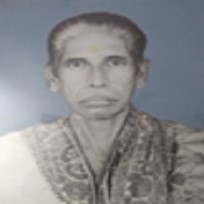
66. Sri N.G. Rajan
Early Life and Education
- N.G. Rajan was born on 2 August 1924 in Nagapattinam, Tamil Nadu.
- He was the son of Shri K. Nadesa Pillai and Soundravalli Ammal.
- He studied up to the 8th class at the National High School in Nagapattinam.
Activism
- N.G. Rajan was inspired by Pandit Jawaharlal Nehru's speech in 1935, Rajan joined the freedom movement.
- He moved to Karaikal with his father, where he was influenced by local freedom fighters and communist leaders.
- In 1943, he led a signature campaign to save Mahatma Gandhi during his hunger strike, appealing to Viceroy Wavell.
Arrests and Imprisonments
- In September 1947, N.G. Rajan was arrested for attacking police during a procession and sentenced to six months in prison.
- The sentence was later overturned by the Pondicherry Court and the Paris Privy Council.
- He was arrested multiple times for defying bans on meetings and processions, totalling one year, two months, and 17 days in prison.
Political Career and Recognition
- N.G. Rajan was elected as a councilor in Karaikal Municipality in 1968 and served until 1977.
- The Government of India awarded him the Tamara Pattam and a Certificate of Honour for his role in the freedom movement against the French regime.
Death
- Sri N.G. Rajan passed away on 4th November 1994.
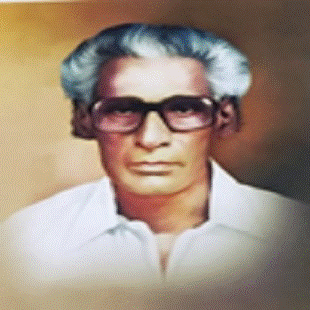
Early Life and Background
- G. Kasinathan was born on 22 January 1924 in Sarvakattalai near Vedaranyam, Nagapattinam district.
- He was son of Govindaswamy.
Service in Indian National Army (INA)
- Kasinathan initially served as a member of the INA and later as a sepoy in the Base Workshop in Rangoon.
- He fought the British forces but was captured and imprisoned for 10 months in Rangoon.
Recognition and Honors
- Kasinathan was awarded the Freedom Fighter Tamra Patra by the Government of Tamil Nadu in 1973 and by the Government of India in 1988.
Death
- G. Kasinathan passed away on 23 April 1991 in Sarvakattalai.
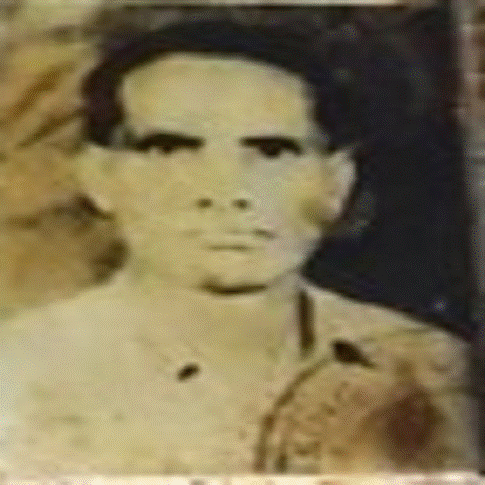
68. Masillamani Pillai and Jepamani Ammal
Early Life and Background
- Masillamani Pillai was born in 1886 in Kompadi near Thoothukudi, Tamil Nadu.
- He attended St. Francis Xavier School in Thoothukudi and was a carpenter by trade.
Contribution to the Freedom Movement
- Masillamani Pillai was known for making and distributing wheels for spinning yarn, which he gave away for free to promote the Swadeshi movement.
- He actively spread ideas about Indian independence and was nicknamed "Simmakkuralon" for his tireless efforts in traveling from village to village to advocate for liberation.
Involvement in Key Movements
- He translated speeches of prominent freedom fighters like Mahatma Gandhi and Jawaharlal Nehru into Tamil, gaining prominence as a speaker.
- Masillamani Pillai was imprisoned for a year and fined Rs. 200 for participating in the 1930 Salt Satyagraha.
- He also attended the All-India Congress Conference in Karachi in 1931, supporting Gandhiji's resolution on fundamental rights.
Further Arrests and Imprisonments
- In 1941, Masillamani Pillai was jailed for six months and fined Rs. 200 for conducting a personal satyagraha.
- He faced additional imprisonment for refusing to pay the fine.
- He was later imprisoned for 30 months across various jails for his participation in the 1942 Quit India Movement.
Social Contributions and Legacy
- Masillamani Pillai ran a school for the elderly at his own expense and was supported in his efforts by his wife, Jepamani Ammal.
- Together, they were the first couple in Thoothukudi arrested for participating in anti-World War II protests.
- Masillamani Pillai’s contributions were widely recognized, and he was remembered for his patriotic songs and activism.
- Streets in Thoothukudi are named 'Masillamani Puram' in his honor.
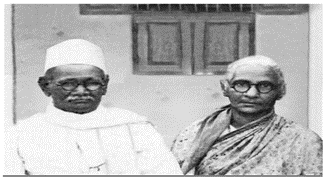
69. Vellaya Thevan
Background and Early Life
- Vellaya Thevan was the son of Mangalathevar, Chief of Sayalkudi village in the Sethupathi Kingdom.
- He was known for his fierce bravery and was a prominent commander in Veerapandiya Kattabomman’s army.
Heroic Acts and Loyalty
- Vellaya Thevan is famous for saving Veerapandiya Kattabomman's life during a critical battle.
- His bravery was instrumental in Kattabomman’s survival, which is celebrated in local folklore as the "Brave Vellaya Thevan’s Epic."
- Vellaya Thevan’s courage and loyalty were deeply valued by Kattabomman, who honorarily referred to him as “my father.”
Military Achievements
- He was known for his fearless approach to warfare and was never known to have lost a battle.
- His bravery is immortalized in a local poem and folk music.
- During the Avani festival on 1 September 1799, Vellaya Thevan defended Thiruchendur against an attack, sustaining injuries but fighting bravely until Kattabomman and Oomaithurai returned.
Recognition and Legacy
- Despite his significant contributions, Vellaya Thevan’s bravery is often overshadowed in historical records.
- His name is celebrated in local stories and songs.
Death
- Vellaya Thevan died during the battle at Thiruchendur, but the exact date of his death is not clearly recorded.
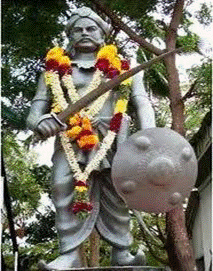
70. P.V. Ayyasami
Early Life and Background
- P.V. Ayyasami was born in 1920 in Vidyanar near Ammapettai, Salem, Tamil Nadu, to Veerasamy and Muniyammal.
- He was influenced by Gandhi’s ideology and closely associated with prominent leaders like Kamaraj, Rajaji, and Sardar Vedarathnam Pillai.
Contribution to the Freedom Movement
- Ayyasami was actively involved in the Indian freedom struggle, working for the All-India Congress Committee.
- He took part in the Satyagraha in 1941 and the Quit India Movement in 1942.
Imprisonment and Recognition
- In 1942, P.V. Ayyasami was arrested and imprisoned in Bellary Jail for fifteen months.
- In recognition of his contributions to the freedom struggle, he was awarded the Freedom Fighter Tamra Patra by the Government of India in 1972.
Death
- P.V. Ayyasami passed away on 27 August 1989.
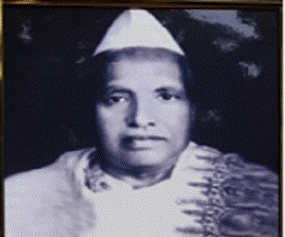
-------------------------------------


